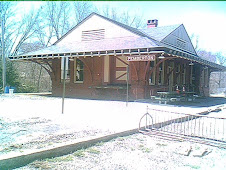A new fight over how to save the Pinelands
By Jacqueline L. Urgo
Inquirer Staff Writer
A Sierra Club leader said clustering may pose "the single largest threat ever" to the ecologically sensitive forests and farmlands.
The amendment to the Pinelands Comprehensive Management Plan will take effect in April if Gov. Corzine approves. It mandates that municipalities approve new homes on smaller lots than are typically used now.
The master plans of some municipalities in the seven-county, 1.1 million-acre Pinelands reserve currently require that homes be built on more than one acre - which spreads development over larger areas.
Clustering homes allows the rest of a development's land to be preserved, owned and maintained by a homeowners' group, a nonprofit agency, or a municipality, according to the amendment.
Another provision permits existing farmland to be used for clustered development while the rest of the property remains agricultural. It also says agricultural use on property may be expanded up to 50 percent if conditions are met.
The Pinelands Commission says the rules would conserve space and leave larger parcels for preservation in areas already designated "forest" and "rural development," and direct growth to "appropriate" areas such as those close to roads and other infrastructure, commission spokesman Paul Leakan said.
There are 35 municipalities in "forest" areas and 27 in "rural development" areas spread throughout Atlantic, Burlington, Cape May, Camden, Cumberland, Gloucester and Ocean Counties. More than 53 percent of the Pinelands reserve is already considered permanently preserved.
"The idea is to avoid fragmentation of the forest and, in the long run, allow for development within these classified areas that makes more sense environmentally," Leakan said. "Our goal is to protect the resources, not degrade them."
John C. Stokes, executive director of the Pinelands Commission, called the measure essential to maintaining the character of the region.
"These changes will be vital to helping to preserve and maintain the essential character of the Pinelands environment, while preventing the proliferation of homes on large lots scattered through the Pineland 'forest' and 'rural development' areas," Stokes said in a statement.
"By requiring the clustering of residential development in these areas, we will permanently protect large contiguous areas of environmentally sensitive land that contains high water-quality resources and protects important habitat for characteristic and rare Pinelands plants and animals," Stokes said.
But critics say the plan could spur greater residential development in the environmentally sensitive zone. And clustering could increase groundwater pollution, said Jeff Tittel, director of the New Jersey chapter of the Sierra Club.
He said he was working with the New Jersey Conservation Fund and other groups to fight the new regulations.
"With this plan we're seeing the biggest threat to the Pinelands we've ever seen in the history of the Pinelands," Tittel said. "It actually promotes growth in areas where growth should not promoted."
He said he the plan contradicted the Pinelands Commission's mission by allowing more homes on smaller lots.
"You could have a piece of land where, before, you had three or four houses that could be built because of master-plan restrictions, that now could have 11 or 12 houses built," Tittel said.
He also contended that building homes closer together in rural areas - which rely on individual septic systems rather than public systems to dispose of human waste - could leach greater concentrations of nitrates and other harmful matter into the environment more rapidly.
Septic systems have been used for decades in rural areas because homes and businesses are usually farther from one another than they are in urban areas, and the separation allows for the slower absorption of nitrates, Tittel said.
The state Department of Environmental Protection, however, has indicated the new clustering regulations would meet its requirements for septic systems in rural areas, according to the Pinelands Commission.
Leakan said the commission staunchly supported the new measure because - contrary to environmentalists' concerns - it is meant to preserve the Pinelands, not to promote growth. "It does not disrupt large parcels with scattering development but clusters it into smart-growth areas," he said. "With this new measure we are still talking very moderate amounts of growth. The density in these areas is still extremely low compared to the rest of the state."
Woodbine Mayor William Pikolycky called the new regulations a step toward smart growth in his Cape May County borough. By clustering homes, he said, the municipality can save on road construction and maintenance and on fuel for services such as trash pickup and school buses.
But Hammonton Mayor John DiDonato said that until the new measure was in place, it would be hard to know what effect it would have on his municipality. Hammonton, in Atlantic County, is a combination of forested and farm areas.
"We are certainly opposed to massive amounts of growth in those areas, but that's not to say that this would promote that," DiDonato said. "We just have to remain mindful of what any growth can do to an environmentally sensitive area like the Pinelands."
The Pinelands Commission unanimously approved the measure Jan. 16, but it won't take effect until Corzine approves the minutes of that meeting, probably in early April, Leakan said.
A spokesman said that only in very rare cases would the governor not accept meeting minutes, thereby vetoing them. The Governor's Office had no comment on the Pinelands case while it is being reviewed.
Contact staff writer Jacqueline L. Urgo at 609-823-9629 or jurgo@phillynews.com.





No comments:
Post a Comment